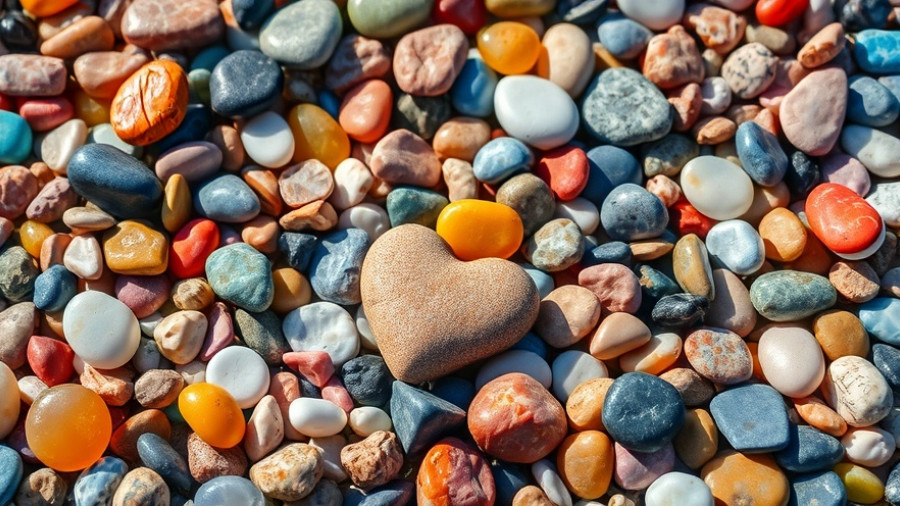
Exploring the Diverse Schools of Buddhism: A Path to Mindfulness and Resilience
Buddhism is not just a single tradition; it’s a tapestry woven from centuries of history, culture, and spiritual practice. As it has evolved over 2,500 years, numerous schools of thought emerged, each with unique teachings and approaches to achieving enlightenment. Understanding these schools is not only a journey into the past but also an exploration of deeply relevant lessons for today’s world—especially for those grappling with stress, mental health challenges, and the quest for personal resilience.
The Ancient Wisdom of Theravāda
At its roots, Theravāda Buddhism, or “The Way of the Elders,” preserves the earliest teachings of the Buddha. This school is prominent in Southeast Asia, with its practices steeped in ancient traditions that encourage individual responsibility in the pursuit of enlightenment. Picture saffron-robed monks navigating the vibrant streets of places like Sri Lanka and Myanmar, embodying stability and mindfulness in their daily practices.
For many youth and families seeking ways to cultivate resilience, these teachings emphasize a deeply personal journey. By embracing meditation practices steeped in the Theravāda tradition, individuals can find tools for stress reduction and self-efficacy, enhancing their mental well-being while navigating life's challenges.
Mahayāna: The Flowering of Compassion
Mahayāna Buddhism, often referred to as “The Great Vehicle,” broadened the understanding of enlightenment from a personal ambition to a collective endeavor. This school introduces the Bodhisattva path, emphasizing compassion as the core of spiritual practice. Imagine a community where not only individual struggles are addressed, but where acts of kindness and support become driving forces for change.
For young people plagued by issues such as crime and mental health struggles, Mahayāna teachings offer a vibrant path toward collective resilience and community engagement. By fostering a sense of belonging and shared purpose, these principles can create supportive environments that empower youth to rise above societal challenges.
Zen and the Art of Everyday Mindfulness
Zen Buddhism emerges within the Mahayāna tradition, promoting the idea that each ordinary moment holds the key to enlightenment. Practicing Zen can provide practical insights for everyday stress reduction. Whether you’re washing dishes or sipping tea, mindfulness can be integrated into daily life.
Imagine the transformative power of simply being present. This practice reinforces the idea that enduring peace and mental clarity are accessible to everyone, marking a vital resource for students and professionals grappling with the pressures of modern life.
Pure Land: A Path of Accessible Devotion
For those who find traditional practices challenging to engage with, Pure Land Buddhism offers a path rooted in faith and devotion. Followers believe that sincere prayer and the recitation of Amitabha Buddha’s name can lead to rebirth in a realm where enlightenment is more achievable. This approach makes spirituality accessible to people from all walks of life, including those in transitional and vulnerable positions.
The appeal extends particularly to families and caregivers seeking ways to instill hope and resilience. This school shows that spiritual practice can be intertwined with community support, nurturing a safe space for shared emotional experiences.
Vajrayāna: The Lightning Path to Enlightenment
Vajrayāna, often considered the most complex branch of Buddhism, incorporates esoteric practices aimed at achieving rapid enlightenment. Through mantras, visualizations, and rituals, practitioners work to uncover their inherent ‘Buddha nature.’
This style might seem daunting, but its emphasis on direct experience can encourage practitioners, especially professionals, to reclaim their intrinsic wisdom. Embracing these techniques may foster self-efficacy, ultimately leading to improved mental health outcomes and fostering resilience.
Conclusion: Embracing Timeless Buddhist Wisdom in Modern Life
Regardless of the path chosen, the different schools of Buddhism reveal that there is no one-size-fits-all approach to enlightenment. Each tradition offers unique perspectives and practices that resonate with the struggles of our times, addressing mental health, stress, and personal empowerment.
Ultimately, engaging with these teachings enables individuals—youth, families, caregivers, and teachers alike—to navigate life’s challenges with peace and resilience. As you integrate mindfulness practices into your routine, consider exploring these diverse Buddhist paths further.
Ready to dive deeper into Buddhist teachings? Our meditation app offers insights and resources to help you cultivate self-efficacy and resilience through mindfulness. Download now to connect with your spiritual journey and join a supportive community looking to make life a more peaceful and fulfilled experience.
 Add Row
Add Row  Add
Add 




Write A Comment